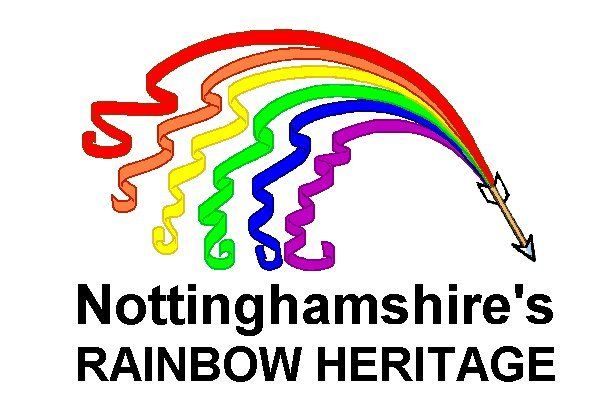A Nottinghamshire Miscellany
Rev. Thomas Philips, vicar of Misterton in Bassetlaw, was convicted of homosexual offences with several teenagers. He is the only Anglican clergyman in the county to be prosecuted under the 1885 Criminal Law Amendment Act.
Lady Mary Wortley Montagu came from one of Nottinghamshire's most stately families, the Pierreponts. After a teenage romance with Anne Wortley, Mary escaped her father's choice of husband for her by eloping with, and marrying, her girlfriend's brother Edward.
The Pavilion Club in Shardlow just over the border opened in 1971. Known locally as the Handbag Club it was destroyed by fire in 1983, and a charitable trust was formed from the insurance. The Pavilion Trust has supported LGBT causes across the East Midlands. Click HERE for more information.
D. H. Lawrence wrote "Lady Chatterley's Lover" after reading the gay novel "Maurice" by his friend E. M. Forster.
Both Nottingham and Mansfield have provided contestants for the Mr. Gay UK finals, either as Mr. Gay Nottingham, Mr. Gay Mansfield, or the county-born representatives of other cities.
Gay loner Grenville Carter was murdered by his flatmate in 2001. What made the murder particularly nasty was that Carter's body was cut up into bits and dumped in bin-liners in Canning Circus cemetery in Nottingham.
In 1915 an eccentric woman was arrested for begging in Nottingham. It turned out that she was an astrologer and mystic, and that "she" was a man. His life as a mystic is nothing compared to his childhood as a Serbian refugee.
Karl Wood, who spent many years in Nottinghamshire, made a painting of every windmill in the country. With paintings of other long-lost buildings Wood's paintings form an invaluable resource for historians. Unfortunately, his work was cut short when he was convicted of homosexual offences in 1951.
The only openly gay man to compete in athletics at the 2004 Athens Olympics (and the only one ever to represent the UK in athletics) was Southwell's Rob Newton. His promising career began with several junior county titles.
Lawrence of Arabia was famous for riding Nottingham-made Brough motorbikes, on which he speeded between Nottingham and RAF Cranwell where he was stationed, stopping off sometimes at Newark to play snooker.
One of the gayest kings around was the big and butch Edward II. He stayed at various residences across the county many times. He even made his equally big and butch boyfriend Piers Gaveston the Constable of Nottingham Castle and Justice of Sherwood Forest.
Nottingham-born Bob Mellors was inspired by gay rights protests in New York to co-found the Gay Liberation Front in the UK in 1970. The GLF went on to organise the first gay Pride rally in London in 1972.
Decorated war hero and MP for Newark, Lord Arthur Pelham Clinton committed suicide after his partner Ernest Boulton, a famous Victorian cross-dresser, was taken to court for "outraging decency".
The Holocaust Centre at Laxton has the UK's only memorial to the LGBT victims of Nazi persecution. Click HERE for more information.
Barry Prothero was the first director of Angel Row, Nottingham's contemporary art gallery, in 1991. He courted controversy with several exhibitions. He and his partner Tim died of AIDS in 1996, and Elton John dedicted a memorial garden to them at the Royal Free Hospital, London.
La Chic made history when it opened in Nottingham in 1973 as the first specifically gay club to receive a licence in the UK.
Richard Cowell, Naval officer and former Nottingham student and barman, defied his Royal Navy superiors by competing in Mr Gay UK 2005 as Mr. Gay Plymouth. He came second in the grand final.
Lord Byron's sexual tastes - ranging from his half-sister to assorted Greek peasant boys - outraged high society so much that he was refused burial at Westminster Abbey or St. Paul's. He was buried in the family vault at Hucknall.
Nottingham bar Jacey's took the city council to court over its ban on male strippers, and won after pointing out that the council had hosted the Chippendales at the Theatre Royal.
Robin Hood, the world famous literary legend, has had his sexuality questioned for many years. In particular, the Robin Hood Conference in 1999 sparked a lot of media hype about how "merry" he and his Merry Men were.
